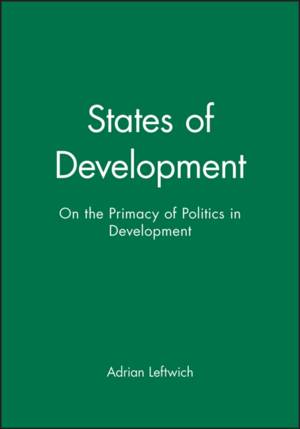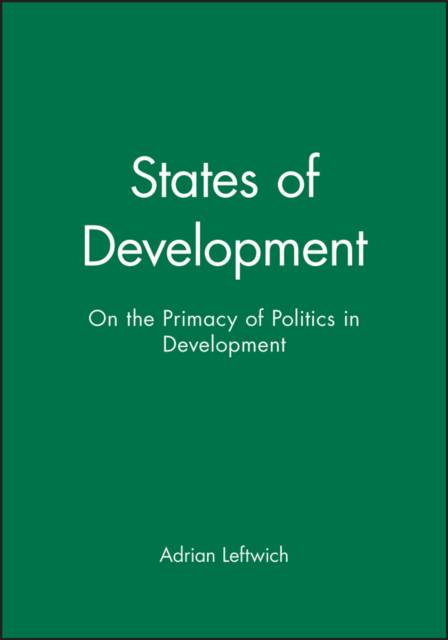
Je cadeautjes zeker op tijd in huis hebben voor de feestdagen? Kom langs in onze winkels en vind het perfecte geschenk!
- Afhalen na 1 uur in een winkel met voorraad
- Gratis thuislevering in België vanaf € 30
- Ruim aanbod met 7 miljoen producten
Je cadeautjes zeker op tijd in huis hebben voor de feestdagen? Kom langs in onze winkels en vind het perfecte geschenk!
- Afhalen na 1 uur in een winkel met voorraad
- Gratis thuislevering in België vanaf € 30
- Ruim aanbod met 7 miljoen producten
Zoeken
€ 47,95
+ 95 punten
Omschrijving
The spectre of poverty, disease and ignorance still haunts much of the developing world today. But not everywhere. Some societies, such as Botswana, Mauritius, Malaysia and Korea, are successfully transforming the material life of the majority of their citizens, though not always without costs in terms of human rights. Others, such as Peru, Zaire, India and the Philippines, appear incapable of doing so. In this widely comparative study, Adrian Leftwich examines why this has happened.
Focusing on the politics and states of a wide range of developing societies, Leftwich generates a model of the 'developmental state' as a particular sub-type of state in the modern world, and argues the case for the primacy of politics in development. He challenges a number of contemporary orthodoxies in western overseas development policy, especially the current insistence that democracy is a necessary condition for development.
States of Development will be essential reading for students and scholars in development studies and politics.
Focusing on the politics and states of a wide range of developing societies, Leftwich generates a model of the 'developmental state' as a particular sub-type of state in the modern world, and argues the case for the primacy of politics in development. He challenges a number of contemporary orthodoxies in western overseas development policy, especially the current insistence that democracy is a necessary condition for development.
States of Development will be essential reading for students and scholars in development studies and politics.
Specificaties
Betrokkenen
- Auteur(s):
- Uitgeverij:
Inhoud
- Aantal bladzijden:
- 240
- Taal:
- Engels
Eigenschappen
- Productcode (EAN):
- 9780745608433
- Verschijningsdatum:
- 5/03/2001
- Uitvoering:
- Paperback
- Formaat:
- Trade paperback (VS)
- Afmetingen:
- 152 mm x 229 mm
- Gewicht:
- 326 g

Alleen bij Standaard Boekhandel
+ 95 punten op je klantenkaart van Standaard Boekhandel
Beoordelingen
We publiceren alleen reviews die voldoen aan de voorwaarden voor reviews. Bekijk onze voorwaarden voor reviews.









